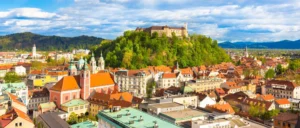Introduction
The harvest festival called Pongal is one of the happiest times of the year in Tamil Nadu. It comes in the month of January, when farmers finish their main harvest. Families give thanks to the Sun, cattle, and nature for helping them with food and life. This festival is also known as the Tamil harvest festival or Thai festival. People celebrate it for four days with food, prayers, and togetherness.
What Pongal Means
The word Pongal comes from the Tamil word pongu, which means "to boil over." It refers to the dish made during the festival, when rice and milk are cooked until they overflow from the pot. This act is a symbol of joy, wealth, and plenty.
The idea of giving thanks to nature is ancient in Tamil culture. Farmers and families believe that without the Sun, rain, and cattle, there can be no crops. The festival is their way of showing gratitude.
Historical Background
he history of Pongal goes back more than a thousand years. Historians believe it was celebrated during the Sangam Age in Tamil Nadu, when agriculture and cattle-rearing shaped society. The ancient Tamil kings supported farming and honoured the Sun God, cattle, and rain as sources of prosperity.
Classical Tamil texts like Thiruvalluvar's Thirukkural talk about the importance of agriculture and gratitude. Inscriptions in temples, especially in Thanjavur and other Chola kingdom centres, describe harvest rituals that resemble today's Pongal.
Originally, Pongal was a simple ritual of offering freshly harvested rice to deities. Over time, it grew into a four-day festival with cultural, social, and agricultural significance. Even today, Pongal holds onto these ancient traditions while adapting to modern life.

When does the festival happen?
The festival comes in the middle of January. It marks the start of the Tamil month called Thai. This is also the time when the Sun begins its six-month northward journey. For farmers, it is the time when crops like rice, sugarcane, and turmeric are ready.
The four days of the festival are:
- Bhogi – a day for cleaning homes and thanking the rain god.
- Surya (Sun) Day – offering the main dish to the Sun.
- Maattu (Cow) Day – honouring cattle that help with farming.
- Kaanum Day – visiting relatives and friends.
1. Day One – Bhogi
Bhogi is about new beginnings. On this day, people clean their homes and burn unwanted things in a small fire. This act means leaving behind the old and starting fresh. Houses are decorated with colourful kolams made from rice flour. Farmers pray to the rain god Indra for water to help their fields in the coming year. Families gather and share food.
2. Day Two – Surya Day
The second day is the most important. It is for the Sun God, who gives light and energy. On this day, people cook the special dish called Pongal in new clay pots. When the milk boils over, everyone shouts with joy.
The dish is made with rice, milk, jaggery, and lentils. Some add ghee, cashews, and raisins. After cooking, the food is offered to the Sun along with sugarcane, bananas, and coconuts. Families then eat together.
3. Day Three – Maattu Day
This day is for cattle, the helpers of farmers. Cows and bulls are washed, painted, and decorated with flowers. They are fed well and respected.
In villages, cattle games and races are held. A sport called Jallikattu is also linked to this day. It shows the relationship between humans and animals in farming life.
4. Day Four – Kaanum Day
The last day is more about social life. Families visit relatives and friends. Many people have picnics near rivers or parks. Married women pray for the health and success of their brothers. Elders bless the younger members of the family.
Food and Traditions
Food is central to this festival. The sweet rice dish made with jaggery is the main item. Other snacks, coconut sweets, and sugarcane are also enjoyed. Freshly harvested rice is used in cooking.
Homes are decorated with banana leaves, turmeric plants, and colourful patterns on the floor. People wear new clothes, listen to music, and enjoy folk dances. The whole atmosphere is bright and festive.
Importance in Tamil Culture
The Tamil harvest festival is not only about crops. It also brings families closer and teaches respect for nature. For centuries, it has reminded people that farming is the root of life.
Even today, schools and cultural groups hold events to teach children about this festival. It helps young people understand and appreciate their culture.
Synonyms and Related Festivals
The festival is also called Thai Pongal, the Tamil harvest festival, or the Festival of Abundance. Other parts of India celebrate similar harvest events, such as Lohri in Punjab, Bihu in Assam, and Makar Sankranti in the north. While names are different, the idea is the same—thank nature for food and life.

Relevance Today
Life is different now, but the festival still matters. Many people live in cities, yet this tradition keeps them close to their cultural roots. It also spreads the message of caring for animals, saving water, and living in balance with nature.
For Tamil communities living abroad, the festival is a way to stay connected to their homeland. From Malaysia to Europe and America, Tamils gather in large groups to cook the dish, sing folk songs, and share their traditions.
Modern Celebrations
In villages, people still follow old customs. In cities and other countries, cultural groups organise events. There are cooking contests, dance shows and family picnics. These gatherings make sure traditions are passed on to the younger generation.
Conclusion
The Tamil harvest festival known as Pongal is a mix of faith, culture, and gratitude. It started long ago in the Sangam period, but it still matters today. Farmers use it to thank nature, while families use it to enjoy time together.
By celebrating this festival, people remember that true wealth comes from food, unity, and respect for nature. It is not only a Tamil tradition but also a lesson for the whole world.





